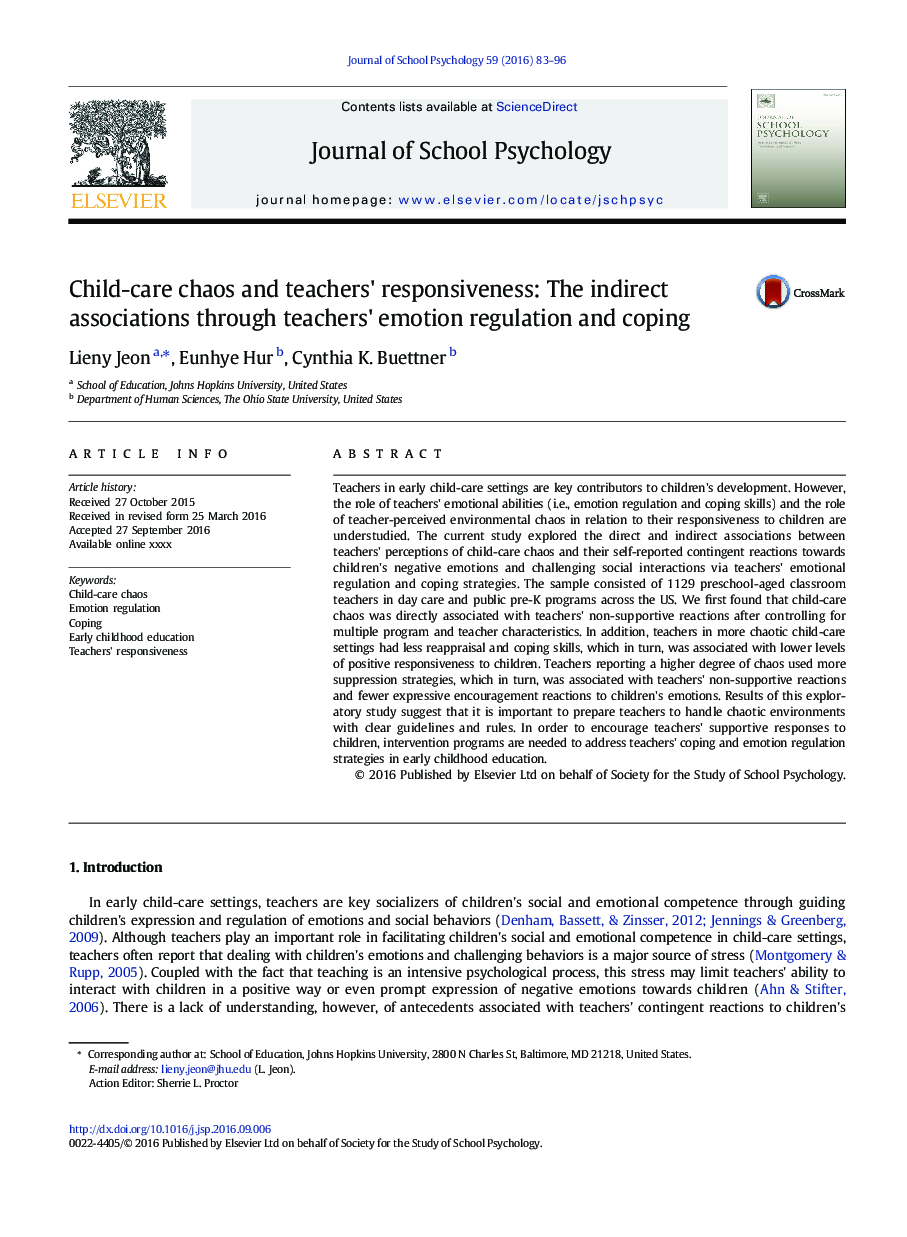| Article ID | Journal | Published Year | Pages | File Type |
|---|---|---|---|---|
| 4939815 | Journal of School Psychology | 2016 | 14 Pages |
Abstract
Teachers in early child-care settings are key contributors to children's development. However, the role of teachers' emotional abilities (i.e., emotion regulation and coping skills) and the role of teacher-perceived environmental chaos in relation to their responsiveness to children are understudied. The current study explored the direct and indirect associations between teachers' perceptions of child-care chaos and their self-reported contingent reactions towards children's negative emotions and challenging social interactions via teachers' emotional regulation and coping strategies. The sample consisted of 1129 preschool-aged classroom teachers in day care and public pre-K programs across the US. We first found that child-care chaos was directly associated with teachers' non-supportive reactions after controlling for multiple program and teacher characteristics. In addition, teachers in more chaotic child-care settings had less reappraisal and coping skills, which in turn, was associated with lower levels of positive responsiveness to children. Teachers reporting a higher degree of chaos used more suppression strategies, which in turn, was associated with teachers' non-supportive reactions and fewer expressive encouragement reactions to children's emotions. Results of this exploratory study suggest that it is important to prepare teachers to handle chaotic environments with clear guidelines and rules. In order to encourage teachers' supportive responses to children, intervention programs are needed to address teachers' coping and emotion regulation strategies in early childhood education.
Related Topics
Social Sciences and Humanities
Psychology
Applied Psychology
Authors
Lieny Jeon, Eunhye Hur, Cynthia K. Buettner,
